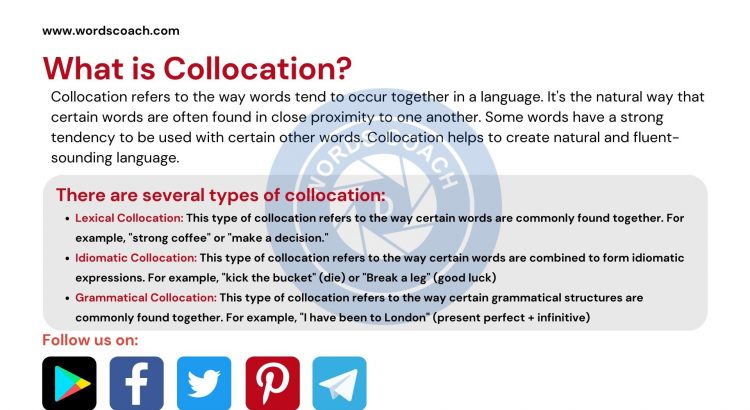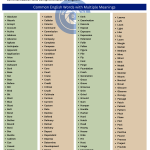What is Collocation?
Collocation refers to the way words tend to occur together in a language. It’s the natural way that certain words are often found in close proximity to one another. Some words have a strong tendency to be used with certain other words. Collocation helps to create natural and fluent-sounding language.
There are several types of collocation:
Lexical Collocation:
This type of collocation refers to the way certain words are commonly found together.
For example, “strong coffee” or “make a decision.”
Idiomatic Collocation:
This type of collocation refers to the way certain words are combined to form idiomatic expressions.
For example, “kick the bucket” (die) or “Break a leg” (good luck)
Grammatical Collocation:
This type of collocation refers to the way certain grammatical structures are commonly found together.
For example, “I have been to London” (present perfect + infinitive)
Examples of collocation:
- “strong coffee” (lexical collocation)
- “make a decision” (lexical collocation)
- “Kick the bucket” (idiomatic collocation)
- “Break a leg” (idiomatic collocation)
- “I have been to London” (grammatical collocation)
Collocations Exercise (Collocation Quiz)
It’s important to note that collocation can be influenced by factors such as register, style, and context. Understanding collocation can help you to sound more natural and fluent in a language, and it’s often something that native speakers do unconsciously.






